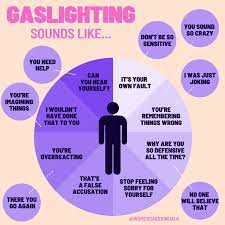
Gaslighting is an emotional abuse tactic that leaves victims feeling powerless, confused and anxious. From loved ones or coworkers alike, gaslighting has caused serious long-term issues for its victims. Here we explore some of the most prevalent gaslighting examples documented through extensive research and interviews with victims.
Gaslighters often try to deflect responsibility for their actions by questioning a victim's memories and accusing them of lying, according to research published in American Sociological Review. This can cause the victim to doubt their own sanity while also prompting them to question how others view them.
A common tactic used by gaslighters is telling their victim lies, which may seem comforting or explain difficult circumstances, but is actually intended to suppress emotions and make the victim feel guilty for experiencing natural responses in these challenging times.
A person who gaslights you will display characteristics of both Dr. Jekyll and Mr. Hyde when it comes to how they treat you; at times being supportive and sensitive while other times behaving controllingly or changing topics frequently to avoid debate with you or make it seem as though they don't have enough time for certain conversations.